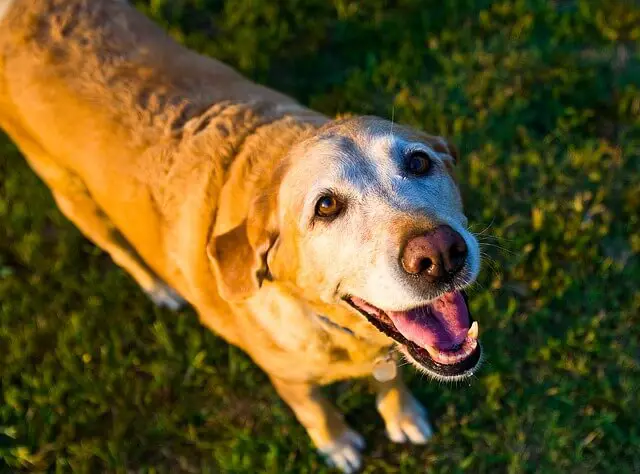Arthritis in Dogs - How to Handle It?
01.03.2021.
As dogs grow old, they become prone to developing health issues that are connected with old age. One of these health concerns is arthritis in dogs. If you know what to look for, signs of arthritis can be easy to spot. As dog owners, it is natural that we want only what is best for our dog, and helping them deal with dog arthritis is the most we can do. Here is what you need to know about arthritis in dogs.
What is dog arthritis?
Dog arthritis is very similar to human arthritis. It can be defined as the inflammation of the joints due to changed or damaged cartilage in the affected joint. It is most common in hips, elbows, and ankles. The affected cartilage can move, which causes the joint bones to rub against each other. That rubbing can cause further cartilage destruction.
One of the issues regarding arthritis in dogs is the formation of new bone tissue in the joint. That formation causes even more problems, and it is a natural way the body is protecting itself from pain. The new bone tissue makes joint movement even harder, and it causes further stiffness, inflammation, and discomfort to the dog.

The most common form of arthritis in dogs is osteoarthritis. Check out this article for more info - Osteoarthritis in dogs.
What causes arthritis in dogs to develop?
Arthritis in dogs is usually connected with older individuals, but there are exceptions. Younger dogs can get affected too. Arthritis in younger dogs is associated with joint deformation, impacting one or more joints in the dog’s body. Dog arthritis is a severe health concern, and owners should monitor the disease’s development and its effects on their dogs. The most common reasons dogs develop arthritis are;
Joint instability
After an injury or damage to the ligaments, the joint can become unstable. The ligaments lose their strength and elasticity, which causes improper functioning of the joint. If that starts happening a lot, the cartilage can get damaged, and the dog can develop dog arthritis.
Trauma
Serious trauma is not uncommon in dogs, especially puppies. They love playing, and they don’t pay too much attention to anything while they are doing it. If a fracture happens, it can cause improper joint function. Dog owners should take be careful about the healing process after their dog suffered a fracture.
Another common condition in older dogs is cancer. Check out this article for more info - Cancer in dogs.
Abnormal cartilage development
Abnormal cartilage development will most likely lead to dog arthritis later in the dog’s life. Hip or elbow dysplasia can cause improper joint formation, bone growth, and abnormal cartilage development. It will most likely lead to inflammation and severe discomfort to the dog.

Symptoms of arthritis in dogs
As we already mentioned, symptoms of arthritis in dogs can be pretty straightforward if you know what to look for. You will clearly notice something different about your dog, even if you do not suspect dog arthritis right away. Your dog will change their normal behavior, and they will do things the more comfortable way. They will be reluctant to do things that are likely to cause them pain or that can be difficult for their joints to handle. Some of the most common symptoms of arthritis in dogs are;
- The dog is reluctant to run or exercise.
- The dog is stiff or lame, especially after a long resting period.
- Cold or damp weather will cause symptoms to worsen.
- The dog will lick the joint, or you noticed signs of saliva on the affected joint.
- The dog will appear slower and less agile than they used to be.
- The dog will most likely be grumpier and in a bad mood due to constant pain.
Dog arthritis treatment
Before the treatment process starts, your vet will need to make sure your dog developed arthritis. They will do a series of tests, and the way vets check which joint is inflamed is by checking the extension and motion range in joints you suspect are causing discomfort to your dog. To make absolutely sure, the vet can recommend an X-ray test.
There are a couple of ways vets can approach dog arthritis treatment. Unfortunately, there is no such thing as arthritis medicine for dogs. The treatment process will expect certain things from the owner as well. The most common ways dog arthritis is treated are;
Cartilage protectors
The vet might suggest giving your dog cartilage protectors to treat the dog arthritis. Things like polysulfated glycosaminoglycans, hyaluronic acid, or pentosan polysulphate will protect the cartilage from further damage and even promote the repair of already damaged tissue.

Joint supplements
Joint supplements are often given as additional support to your dog. These supplements will promote joint health and be full of things like glucosamine and chondroitin, which are fantastic for joint health. Plus, they have anti-inflammatory properties. Joint supplements are among the most effective ways to fight arthritis in dogs and very close to arthritis medicine for dogs.
Check out this article for more info on joint supplements - Glucosamine for dogs.
Anti-inflammatory drugs (NSAIDs)
NSAIDs or nonsteroidal anti-inflammatory drug is an effective way to deal with inflammation associated with dog arthritis. However, this is not a long-term solution for arthritis in dogs. These drugs will help your dog fight off the inflammation, but the rest of the therapy should still go on as planned. NSAIDs also have significant side-effects, so they are not the best solution. They are as close to arthritis medicine for dogs as we have gotten.
Dietary change
The vet will most likely advise adapting your dog’s diet. Arthritis in dogs is harder to treat if the dog is overweight. Some dog foods have supplements like glucosamine or chondroitin included, so that is a great option. If the dog is slightly overweight, it would be a lot better for their joints to lose those extra pounds. The joint pressure will be lighter, and they won’t feel so much pain.
Treating arthritis might need a change in your dog’s diet. Check out this article for some great suggestions - Best senior dog food.
World Dog Finder team







Share